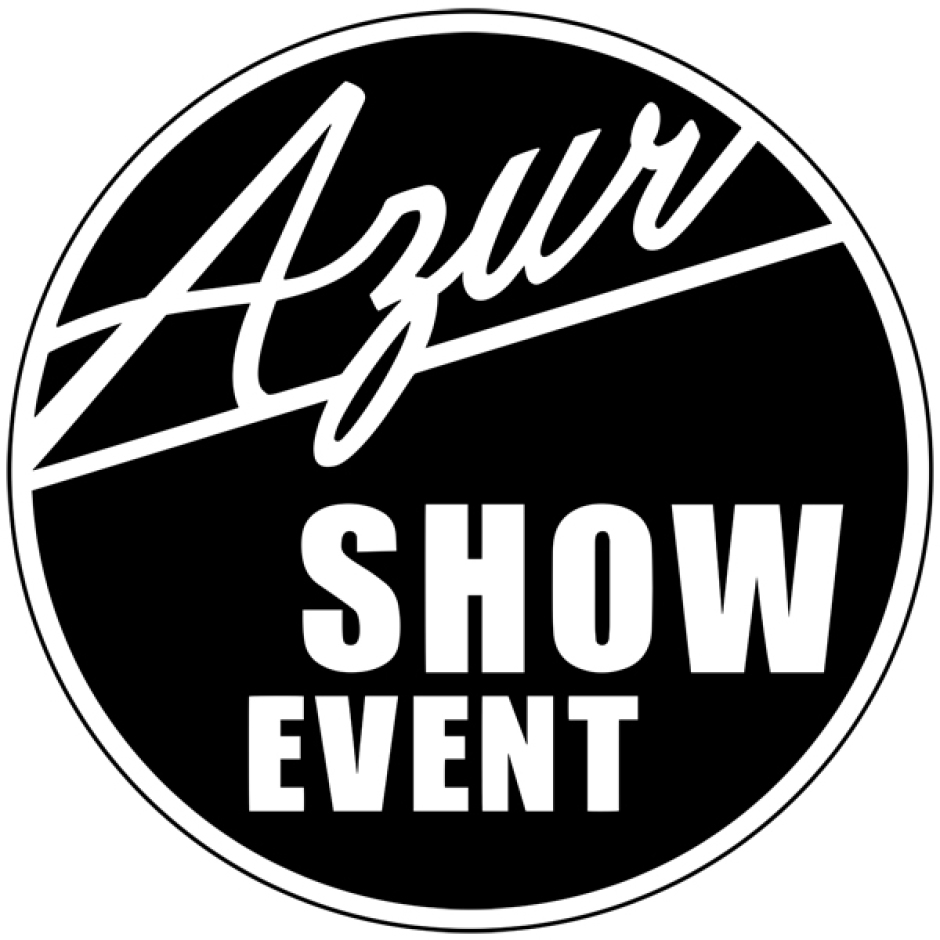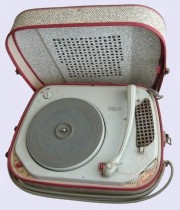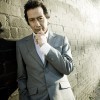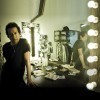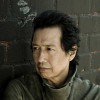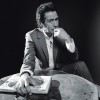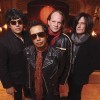ALEJANDRO ESCOVEDO
Biographie
ALEJANDRO ESCOVEDO
Street Songs of Love
Par Lenny Kaye
Il ya auteurs-compositeurs qui chantent leurs chansons, et puis il ya des chansons qui chantent leurs auteurs.
Alejandro Escovedo ne fait qu'un avec sa muse et sa musique. Au cours d'une vie passée à traverser le pont entre les paroles et la mélodie, il a varié sur une profondeur émotionnelle qui englobe toutes les formes de genre et de présentation, d'une voix résolue que résiste à la terrain émotionnel de nos vies, ses fêtes et de désespoirs, les mines terrestres et blindsides et secousses et les distractions beckoning, à la recherche de la libération ultime et la vérité de guérison de l'honnêteté. Parfois, il prend la forme de rage à peine contenue, la roche de punk au milieu s'agenouilla rétroaction; parfois il caresses et apaise, une harmonie whispery cheval l'air d'une salle de discothèque, retiré de l'amplification, au sein du public.
Son ascension a été progressive, une augmentation constante plutôt que d'une ascension rapide, mais il a approfondi et bruni sa musique, il fait plus proche de l'os, où il commence à se briser, l'approfondissement de sa perspicacité et sa capacité à trouver cette intuition de la performance. Sa tournée infatigable, et détermination pour mettre un album après l'autre, l'a conduit à travers de nombreuses scènes musicales, en restant le même personnage à l'intérieur de chacun, d'un artiste qui ne se contente pas de la solution de facilité.
"Vous venez de faire votre bon travail, et les soins des personnes», explique Alejandro sur le téléphone commence une tournée de promotion pour son dernier ouvrage, Street Songs of Love, son album solo dixième. «J'ai toujours cru, quand j'étais gosse, que si vous venez de travailler dur, vous ne trouvera son accomplissement. Je pense que j'ai eu beaucoup de que de mon père et mes frères. Un musicien de travail est tout ce que je voulais être. Le travail dur, de rester fidèle à ce que vous voulez faire, et puis finalement quelqu'un le remarquerait pour cette raison. "
C'est un voyage qui l'a mené du Texas à la Californie à New York et retour au Texas, englobant une largeur de musique aussi variés que les nombreux groupes qu'il faisait partie de avant de se lancer dans une carrière solo. Dans les années 1970, il refait surface sur San Francisco sans-holds-barred scène punk centrée autour des jardins Mabuhay à North Beach, un guitariste dans les nonnes; Rang & Fichier contribué à unir les mondes disparates du punk et du pays dans les années 1980, et après avoir est retourné à Austin, les vrais croyants réunis toutes sortes de musique Americana dans un signe avant-coureur de ce qui allait arriver dans la carrière solo d'Alejandro qui a commencé en 1992 avec l'album Gravity.
«J'ai eu une bonne collection de disques», dit-il lorsqu'on l'interroge sur ses nombreuses racines et les branches. Né à San Antonio en 1951, «J'ai grandi dans une famille de douze enfants. Mes frères étaient Jazzers, en latin jazz et de musique à percussion, cubaine et portoricaine. Ma mère et père adorait la musique trio mexicain, groupes vocaux comme Los Panchos, et As Tres, qui chantaient de belles ballades romantiques en trois partie l'harmonie. Et puis, j'avais une cousine qui vivait avec nous dans les années cinquante, qui était un peu plus âgé que moi, un adolescent qui m'a fait découvrir Elvis et Chuck Berry et le Big Bopper. En 1957, nous avons déménagé au Texas, où j'avais entendu parler des débuts du rock et de la musique pays, et le blues un peu, parce qu'il était là, et nous sommes allés à la Californie. C'est là que je me suis exposé à la richesse de la musique surf, et Ike et Tina Turner, James Brown, Midnighters Thee, la bande 103rd St. Rhythm Watts. Mes cousins nous faufiler dans les danses quand nous étions jeunes, et nous aimerions regarder les danseurs. Je me suis rattrapé en ce que, et la chose anglophile, tous ces groupes de garage qui ont écouté les groupes anglais et l'a transformé en quelque chose de nouveau. "
"Vous ne pouvez pas l'esprit de clocher sur la musique», at-il poursuivi. «J'ai appris que si vous vous immerger dans quelque chose, en écoutant des disques de plus et plus, afin qu'elle devienne une langue, vous pouvez apprendre à le parler. Quand j'ai commencé à venir de l'âge, et était capable de jouer de la musique, c'est devenu comme une religion pour moi. Nous avons eu la chance que la radio à cette époque n'avait pas de frontières. Il était tout neuf. Personne ne savait que tu ne pouvais pas jouer Marvin Gaye, puis Captain Beefheart, puis Sun Ra. Il était génial, et pour moi, tout cela avait un sens. "
C'était une exposition Alejandro à la roue libre tout-va ethos de punk qui le mit en mouvement sur son parcours musical. "La belle chose à propos de punk rock pour moi, c'était que c'était mix-and-match, au moins jusqu'à ce qu'il commence à se définir», at-il dit. "Nous avons des spectacles où une star du reggae comme Max Romeo serait jouer avec un gars comme Ray Campi rockabilly, puis être suivie par l'in-your-face explosion de la criminalité."
Mais c'était à Austin, où il est retourné dans les milieu des années 1980, qui a trouvé une Alejandro géographie musicale qui correspondait à son propre sens musical éclectique de possibilité. "C'est ce lieu qui était complètement ouvert. La communauté vraiment soutenu les musiciens. Il était assez petit pour que vous saviez tout le monde là-bas. On pouvait voir Townes Van Zandt se promener ou aller à un café en plein air et d'entendre Billy Joe Shaver, ou d'attraper les frères Vaughan joue tous les soirs à un certain endroit. Tout le monde apprécie chaque type de genre de musique. Les punks respecté Townes et le Vaughans, et tout le monde Vaughans respecté autre. Musiciens parfois s'isoler dans leurs scènes respectives. Donc, pour être dans cette petite ville où tout le monde encouragés les uns les autres, il y avait de grands spectacles tout le temps, il n'était pas cher pour y vivre, la bière était super, les filles étaient jolies, le temps chaud, il y avait un trou de natation ... C'est une grande C'était comme le paradis pour moi. Austin est une oasis au Texas, où tous ces enfants de la petite agriculture et des villes et des ranchs de l'Ouest du Texas et de l'enclave, et vers le bas dans la vallée, et l'est du Texas, ils viennent tous à Austin, parce que c'est la liberté. "
Comme les années nonante a commencé, Alejandro a eu ce sentiment d'indépendance et a commencé à tracer sa croissance artistique à travers une série d'albums solos qui ont élargi sa renommée et le coeur sur la manche sensibilité. Son premier producteur était Stephen Bruton, le guitariste célèbre qui est malheureusement décédé dans l'au-delà en mai 2009. Ils ont fait trois albums ensemble de 1992 à 1996: - Masse, treize ans, et avec ces mains. Il a ensuite travaillé avec Chris Stamey - "J'ai trouvé quelqu'un qui a écouté tous les enregistrements mêmes, et aimait les mêmes choses sur le rock and roll que j'ai fait» - et des albums qui ont abouti - Blues Bourbonitis (1999), et un homme sous l' Influence (2001) sont assurées confessionnaux et complexe de l'amour, le désir, et la conséquence.
Il était tout en présentant son cycle ambitieux chanson théâtrale explorer l'expérience mexicaine-américaine, par la main du Père, en 2003, qui a été abattu par Alejandro un combat dangereux avec l'hépatite C, ce qui lui a pris la route et dans la récupération. Pendant ce temps, un album hommage double CD, Por Vida, rallia ses amis et sa famille autour de lui. Parmi les participants figuraient Escovedos comme Pete, Javier et Sheila E., et appreciators comme John Cale, Los Lonely Boys, Calexico, Steve Earle, Lucinda Williams, Howe Gelb, Ian Hunter et les Jayhawks, couvrant toutes les chansons du catalogue considérable d'Alejandro. Heureusement, en 2004, Alejandro était sur la façon de faire un rétablissement complet et revenir à l'exécution et l'enregistrement.
Le miroir de boxe, produit par John Cale en 2006, a été l'album cathartique, il a enregistré, après sa maladie. «J'ai dû faire ce disque, il n'existe aucune trace d'autre je pourrais avons fait à l'époque. Il était mal à l'aise à jouer, et même maintenant, nous ne pratiquons pas beaucoup de chansons sur ce disque. "
Peut-être qui a conduit à des animaux Real 2008, une collaboration conceptuelle songwriting avec Chuck Prophet qui a tenté "pour raconter l'histoire des bandes dans lequel j'étais, comment je me suis inspirée par ces bandes, des écrivains, des films, des livres, et a continué à jouer, et alors les aventures d'être dans un groupe. Chuck ajoute son point de vue, ce qui était beaucoup de fois plus humoristiques que la mienne. J'ai souvent peut être accroché sur le plus lourd, plus profond des choses, parfois sans le vouloir, »sourit-il,« et il a apporté l'humour et de la lumière à l'histoire. "
L'album a également l'unissait avec le producteur Tony Visconti, "et qui a commencé une relation qui était très important pour moi de créativité», at-il dit. «C'est l'une de ces relations de travail que j'avais toujours entendu parler, et rêvé, où il était de la famille tout de suite. Il aimait la bande, il a traîné avec nous, et c'est un vrai homme doux, gentil, très chaleureuse et encourageante. Il reçoit tout le monde et heureux, et je pense qu'il apporte des choses en nous que nous ne savions même pas existé. Vous ne pensez pas que les enregistrements qu'il a faits, de Bowie et T. Rex, et les gens avec qui il travaillait. Il est tout simplement vous sentez que vous n'êtes pas en essayant de vivre à quelque chose que vous n'êtes pas. Vous êtes tellement à l'aise avec cette personne, et si inspiré, qu'il devient juste vous, et que tout le monde se desserre vers le haut. "
Cet encouragement partagé peut être entendu tout au long de chaque piste de Street Songs of Love, enregistrées dans une période de douze jours courts au début de 2010, à Saint studios Claire à Lexington, dans le Kentucky, la deuxième fois que Alejandro a été là avec Visconti. Et, comme chaque enregistrement avant, Alejandro a eu l'intuition de la façon dont il a voulu encadrer l'album. Bien qu'il se montre souvent à des concerts avec une section de cordes de remorquage, ou a étendu son «orchestre» à un ou plusieurs douzaines de morceaux, "je savais que je voulais juste les deux guitares, une basse et une batterie de format, que les chaînes devront attendre un certain temps. Afin de créer et de construire une certaine texture, j'ai apporté par la voix, "mais à part ça, l'album est austère et rationalisé.
Une grande partie du crédit pour la sensation de «collaboration Street Songs» doit aller aux garçons sensibles, bande de base d'Alejandro. «J'aime mon groupe," dit-il. «Sans eux, je me sens très seul." Hector Munoz a été son batteur pendant vingt-trois ans, tandis que David a joué de la guitare Pulkingham avec Escovedo pour les sept dernières années (il a aussi joué tous les claviers sur l'album). Et tandis que le bassiste Bobby Daniel est un nouveau venu sur la dernière année », il se sent comme la bonne combinaison», un fait attesté par la vitesse de l'enregistrement de l'album. «Nous avons eu quatorze chansons suivies dans les quatre premiers jours, nous étions juste déchirant eux, totalement dans la zone.
«J'ai commencé à ne pas vouloir parler de moi, juste à écrire des chansons, des chansons pop rock fraîches.« À cette fin, il a mis au point une manière intrigante dans laquelle pour composer et arranger l'album, qui était de réserver une nuit de mardi deux mois de résidence en Austin Continental Club, où Alejandro Escovedo et les garçons sensibles pourraient construire l'album devant une foule en direct.
«Nous aimerions apporter trois nouvelles chansons chaque mardi soir," dit-il de son modus operandi », et nous les jouer acoustique première pour le public, et puis je vais aussi emmener dans la section rythmique, et lentement mais sûrement, nous ajouterions chaque pièce, comme les chanteurs. Je voulais mettre des cornes, mais il ne s'est jamais rendu à ce point. Mais encore, le public a pu regarder les chansons se développer.
«C'était intéressant de le voir grandir et s'épanouir. Cela a commencé avec la moitié salle pleine, mais elle a construit jusqu'à la dernière vendus. Chaque semaine, il est devenu plus intense avec l'album prend forme devant nous organiquement, un travail en cours. C'est comme s'il savait où il voulait aller, de sorte que d'ici la fin de ces deux mois nous avions regardé chansons commencent avec un couplet et un refrain et devenir ce que nous jugions compositions complètes. Et puis nous avons pris que sur la route pour deux semaines et demie, nous conduisant de Austin à jouer notre premier concert à Little Rock, et ensuite travailler notre chemin à Louisville, dans le Kentucky, et puis le lendemain nous sommes allés à Lexington et a commencé à faire l'enregistrement.
"D'ici là, nous n'étions pas penser aux chansons. Ils faisaient partie d'entre nous déjà. "
Ainsi devint Street Songs of Love.
Autrement dit Alejandro:
«ANCHOR»: c'était la première chanson que j'ai écrite pour cet album. J'avais espéré faire un disque qui n'est pas autobiographique, mais à cause de ce qui se passait pour moi dans ma vie personnelle, il est devenu de l'amour, et comment l'amour peut être toutes les colorations différentes et des changements dans la vie: l'amour tragique, l'amour romantique , l'amour léger, énervé amour et l'amour en colère. J'ai essayé de trouver un peu d'espoir dans l'image d'une ancre, qui n'est pas seulement quelque chose qui vous pèse, mais vous empêche aussi de s'envoler.
«SILVER CLOUD": je viens de faire que l'on place en répétition et il est sorti, l'attrait toujours sensuelle d'un gars Toutes les bleus grands qui aiment à se vanter de leur virilité, dans ce «nuage d'argent avec une doublure en dentelle noire." celle que je viens allés pour elle: «Je suis un homme qui a faim ...."
"Ce lit est MISE CROWDED": Est sur tous les fantômes que vous rencontrez sur le chemin d'une relation.
"Street Songs": Il a commencé comme essayer de décrire ce qui se passait autour de ce bloc où le Club Continental est, et puis quand je voyageais, j'ai rencontré quelqu'un et que cette personne fait partie de la chanson. C'est un petit film.
"Down in the Bowery»: Chuck et je l'ai écrit en même temps, et dès que nous l'avons écrit, nous savions qu'il était sur Paris, mon fils, et nous avons commencé à le raffiner en pensant à lui. Il a dix-sept, en colère, jeune et énervé, très calme, aime le punk rock, le bruit et les graffitis. Ca me tente de passer le flambeau, l'encourageant à être son propre type.
«Cœur tendre»: c'est Chuck et moi à nouveau. Nous entrons dans cette affaire où l'on commence à parler de chansons, et en «cœur tendre» que nous creusions la forme que le contenu. Nous avons juste commencé riffs de mots - «J'ai eu un rêve, voulez-vous être dans mon rêve?" - Et ça a décollé à partir de là. J'y ai pensé comme une histoire Carver Raymond court dans une chanson rock.
"Après la pluie de météores»: c'est beau quelqu'un. Comment vous pouvez simplement prendre dans, accablé par cette beauté, prises à un endroit où les pluies de météores se produisent, les étoiles et le vent, et tous les éléments. J'ai eu plusieurs chansons que vous ne savez pas exactement ce qu'ils font, mais vous les écrire, et ils prennent sens une fois que vous rencontrez quelqu'un, ou de passer par quelque chose. C'est arrivé avec cette chanson.
"Tula": c'est à propos de Larry Brown, l'écrivain d'Oxford, Mississippi, qui est devenu un très bon ami à moi. J'ai même fait une tournée avec lui, jouer de la guitare alors qu'il lisait. C'est un grand écrivain, vraiment Sud, un gars qui n'a pas de commencer à mettre ses pensées sur le papier jusqu'à tard dans la vie. Il était allé au Vietnam, revenir à Oxford, est devenu pompier, puis a décidé qu'il voulait écrire. Il a remporté le prix Faulkner, et je l'aimais. Un frère perdu depuis longtemps et il est décédé il ya quelques années, si ce n'est mon salut à lui.
"Indésirable": une chanson sur deux personnes qui ont la chance d'avoir trouvé de l'autre parce que personne d'autre n'en veut.
"FALL APART AVEC VOUS": D'une certaine façon, ce genre de cadre avec «indésirable», et me rappelle la Lemmon Jack, Lee Remick caractères dans Days of Wine and Roses. C'est une sorte de tragique.
"RAIN DÉCORTICAGE": c'est un poème Christoff Kim j'ai mis de la musique. J'ai beaucoup aimé l'imagerie, et cela m'a rappelé une chanson des années soixante, quelque chose de Spooky Tooth, ou au début de Procol Harum.
«FOI»: c'est une simple expression de ce que tu dois avoir, surtout si vous voulez garder sur le keepin 'sur.
"FORT WORTH BLEU": C'est celui que j'ai écrit pour Stephen Bruton. Il était originaire de Fort Worth, et c'est une ville très particulière. Dallas est le centre bancaire important, mais Fort Worth est l'endroit où les bestiaux sont. C'est un peu un endroit sauvage à l'ouest, et la musique qui sort de là est plein de chats fous - Delbert McClinton, T Bone Burnett, le cow-boy légendaire Stardust. Il ya une façon de jouer à Ft.. Worth c'est vraiment différent, un style de guitare bizarre où ils sont d'une section rythmique complète seulement sur six cordes. Stephen a eu cette belle façon de jouer comme ça, et il signifiait beaucoup pour moi. Il était tellement importante dans ma vie. Je pense à lui tout le temps.
English biographie
By Lenny Kaye
There are songwriters who sing their songs, and then there are songs who sing their writers.
Alejandro Escovedo is one with his muse and his music. Over a lifetime spent traversing the bridge between words and melody, he has ranged over an emotional depth that embraces all forms of genre and presentation, a resolute voice that weathers the emotional terrain of our lives, its celebrations and despairs, landmines and blindsides and upheavals and beckoning distractions, in search for ultimate release and the healing truth of honesty. Sometimes it takes the form of barely contained rage, the rock of punk amid kneeled feedback; sometimes it caresses and soothes, a whispery harmony riding the air of a nightclub room, removed from amplification, within the audience.
His rise has been gradual, a steady incline rather than a quick ascendance, but it has deepened and burnished his music, made it closer to the bone, where it begins to break, deepening his insight and his ability to find that insight in performance. His tireless touring, and dogged determination to place one album after another, has taken him through many musical scenes, remaining the same persona within each, of an artist who doesn't settle for the easy way out.
"You just do your good work, and people care," Alejandro says over the phone beginning a promotional tour for his latest work, Street Songs of Love, his tenth solo album. "I always believed, when I was a kid, that if you just worked hard, you would find fulfillment. I think I got a lot of that from my father, and my brothers. A working musician is all I ever wanted to be. Hard work, to stay true to what you want to do, and then eventually someone would notice for that very reason."
It is a journey that has taken him from Texas to California to New York and back again to Texas, encompassing a breadth of music as varied as the many bands he was part of before embarking on a solo career. In the 1970s, he surfaced on San Francisco's no-holds-barred punk scene centered around the Mabuhay Gardens in North Beach, a guitarist in the Nuns; Rank & File helped unite the disparate worlds of punk and country in the 1980s; and after he moved back to Austin, the True Believers combined all manner of Americana music in a harbinger of what was to come in Alejandro's solo career which begun in 1992 with the album Gravity.
"I had a good record collection," he says when asked about his many roots and branches. Born in San Antonio in 1951, "I grew up in a family of twelve kids. My brothers were jazzers, into Latin jazz and percussion music, Cuban and Puerto Rican. Both my mother and father loved Mexican trio music, vocal groups like Los Panchos, and Tres Aces, who sang beautiful romantic ballads in three part harmony. And then I had a cousin who lived with us in the fifties, who was slightly older than me, a teenager who turned me on to Elvis, and Chuck Berry and the Big Bopper. In 1957 we moved from Texas, where I'd heard the beginnings of rock, and country music, and the blues a little bit, because it was around, and we went to California. It was there I got exposed to the wealth of surf music, and Ike and Tina Turner, James Brown, Thee Midnighters, the 103rd St. Watts Rhythm Band. My cousins would sneak us into dances when we were young, and we'd watch the dancers. I got caught up in that, and the Anglophile thing, all those garage bands who listened to the English groups and turned it into something new."
"You can't be parochial about music," he continued. "I learned that if you immerse yourself in something, listening to records over and over, so it becomes a language, you could learn to speak it. When I began to come of age, and was able to play the music, it became like a religion to me. We were fortunate that radio at that time had no boundaries. It was all brand new. No one knew you couldn't play Marvin Gaye, and then Captain Beefheart, and then Sun Ra. It was all great, and to me, it all made sense."
It was Alejandro's exposure to the freewheeling anything-goes ethos of punk that set him in motion on his musical path. "The beautiful thing about punk rock to me was that it was all mix-and-match, at least until it started defining itself," he said. "We would have shows where a reggae star like Max Romeo would play with a rockabilly guy like Ray Campi, and then be followed by the in-your-face blast of Crime."
But it was in Austin, where he returned in the mid-1980s, that Alejandro found a musical geography that matched his own eclectic sense of musical possibility. "It was this place that was completely open. The community really supported the musicians. It was small enough that you knew everybody there. You could see Townes Van Zandt walking around, or go to some beer garden and hear Billy Joe Shaver, or catch the Vaughan brothers playing every night at some place. Everybody appreciated each different type of genre of music. The punks respected Townes and the Vaughans, and the Vaughans respected everybody else. Musicians sometimes isolate themselves in their respective scenes. So to be in this small town where everybody encouraged each other, there were great shows all the time, it was cheap to live there, the beer was great, the girls were pretty, the weather warm, there was a great swimming hole... It was just like paradise to me. Austin is an oasis in Texas, where all these kids from small farming and ranch towns and West Texas and the Panhandle, and down in the Valley, and East Texas, they all come to Austin because it's freedom."
As the nineties began, Alejandro took this sense of independence and began to chart his artistic growth through a series of solo albums that expanded his renown and heart-on-sleeve sensibility. His first producer was Stephen Bruton, the acclaimed guitarist who unfortunately passed into the great beyond in May 2009. They made three albums together from 1992 through 1996 – Gravity, Thirteen Years, and With These Hands. He next worked with Chris Stamey – "I found someone who listened to all the same records, and loved the same things about rock and roll that I did" – and the albums that resulted – Bourbonitis Blues (1999), and A Man Under The Influence (2001) are assured and complex confessionals of love, desire, and consequence.
It was while showcasing his ambitious theatrical song cycle exploring the Mexican-American experience, By The Hand of the Father, in 2003 that Alejandro was felled by a dangerous bout with Hepatitis C, which took him off the road and into recovery. During that time, a double-CD tribute album, Por Vida, rallied his friends and family around him. Participants included Escovedos like Pete, Javier and Sheila E., and appreciators like John Cale, Los Lonely Boys, Calexico, Steve Earle, Lucinda Williams, Howe Gelb, Ian Hunter and the Jayhawks, all covering songs from Alejandro's considerable catalogue. Thankfully, by 2004, Alejandro was on the way to making a full recovery and return to performing and recording.
The Boxing Mirror, produced by John Cale in 2006, was the cathartic album he recorded after his illness. "I had to make that record; there is no other record I could've made at that time. It was uncomfortable to play, and even now, we don't perform a lot of the songs off that record."
Perhaps that led to 2008's Real Animal, a conceptual songwriting collaboration with Chuck Prophet that tried "to tell the story of the bands I was in, how I got inspired by these bands, writers, films, books, and went on to play, and then the adventures of being in a band. Chuck added his perspective, which was a lot of times more humorous than mine. I often can get hung up on the heavier, deeper stuff, sometimes without meaning to," he smiles, "and he brought humor and light to the story."
The album also united him with producer Tony Visconti, "and that began a relationship that was very important for me creatively," he said. "It's one of those working relationships that I'd always heard about, and dreamt about, where he was family right away. He loved the band, he hung out with us, and he's a real gentle, kind man, very warm and supportive. He gets everybody up and excited, and I think he brings things out in us that we didn't even know existed. You don't think about the records that he's made, from Bowie or T. Rex, and the people he worked with. He just makes you feel that you're not trying to live up to something that you're not. You're so comfortable around this person, and so inspired, that he just becomes you, and that loosens everybody up."
This shared encouragement can be heard throughout every track of Street Songs of Love, recorded in a short twelve days in early 2010 at Saint Claire studios in Lexington, Kentucky, the second time that Alejandro has been there with Visconti. And, as each record before, Alejandro had an intuition about how he wanted to frame the album. Though he often shows up at gigs with a string section in tow, or has expanded his "orchestra" to a dozen pieces or more, "I knew I just wanted the two guitars, bass and drums format, that the strings would have to wait a while. In order to create and build some texture, I brought in voices," but other than that, the album is stark and streamlined.
A large part of the credit for the collaborative feel of 'Street Songs' must go to the Sensitive Boys, Alejandro's core band. "I love my band," he says. "Without them, I'd feel very alone." Hector Munoz has been his drummer for twenty three years, while David Pulkingham has played guitar with Escovedo for the past seven years (he also played all the keyboards on the album). And while bassist Bobby Daniel is a relative newcomer over the past year, "it feels like the right combination," a fact attested to by the speed of recording the album. "We had fourteen songs tracked in the first four days; we were just ripping through them, totally in the zone.
"I began not wanting to talk about myself, just to write songs, cool pop rock songs." To that end, he devised an intriguing way in which to compose and arrange the album, which was to book a two month Tuesday night residency in Austin's Continental Club, where Alejandro Escovedo and the Sensitive Boys could build the album in front of a live crowd.
"We would bring in three new songs every Tuesday night," he says of his modus operandi, "and we would play them acoustically first for the audience, and then I'd bring in the rhythm section, and slowly but surely we would add each piece, like the singers. I had wanted to bring in horns, but it never made it to that point. But still, the audience could watch the songs develop.
"It was interesting to see it grow and blossom. It started with the room half full, but it built until the last one sold out. Every week it became more intense with the album taking shape in front of us organically, a work in progress. It's as if it knew where it wanted to go, so that by the end of those two months we had watched songs begin with a verse and a chorus and become what we felt were complete compositions. And then we took that on the road for two and a half weeks, leading us from Austin to playing our first gig in Little Rock, and then working our way to Louisville, Kentucky, and then the following day we went to Lexington and started making the record.
"By then we weren't thinking about the songs. They were a part of us already."
Thus became Street Songs of Love.
In Alejandro's words:
"ANCHOR": was the first song I wrote for this record. I had hoped to make a record that wasn't autobiographical, but because of what was happening to me in my life personally, it became about love, and how love can be all the different colorings and changes in life: tragic love, romantic love, light love, pissed off love and angry love. I was trying to find some hope in the image of an anchor, which is not only something that weighs you down, but also prevents you from floating away.
"SILVER CLOUD": I just made that one up in rehearsal and it came out, the ever-sensual attraction of a "silver cloud with a black lace lining." All the great blues guys who like to boast about their manliness, in that one I just went for it: "I'm a hungry man...."
"THIS BED IS GETTING CROWDED": Is about all the ghosts you encounter along the way of a relationship.
"STREET SONGS": It started as trying to describe what was going around on that block where the Continental Club is, and then when I was traveling I met someone and that person became part of the song. It's a little movie.
"DOWN IN THE BOWERY": Chuck and I wrote it together, and as soon as we wrote it, we knew it was about Paris, my son, and we started to refine it with him in mind. He's seventeen, angry, young and pissed off, very quiet, loves punk rock, noise, and graffiti. It's me trying to pass the torch on, encouraging him to be his own guy.
"TENDER HEART": is Chuck and I again. We get into this thing where we start talking about songs, and in "Tender Heart" we were digging the form more than the content. We just started riffing on words – "I got a dream, do you want to be in my dream?" – and it just took off from there. I thought of it as a Raymond Carver short story in a rock song.
"AFTER THE METEOR SHOWERS": How beautiful someone is. How you can just be taken in, overwhelmed by that beauty, taken to a place where meteor showers happen, stars, and wind, and all the elements. I've had several songs that you don't know exactly what they're about, but you write them, and they take on meaning after you meet someone, or go through something. That happened with that song.
"TULA": is about Larry Brown, the writer from Oxford, Mississippi, who became a very good friend of mine. I even toured with him, playing guitar as he read. He's a great writer, really Southern, a guy who didn't start putting his thoughts on paper until late in life. He'd gone to Vietnam, come back to Oxford, became a firefighter, and then decided he wanted to write. He won the Faulkner Award, and I loved him. A long lost brother and he passed away a few years ago, so this is my salute to him.
"UNDESIRED": is a song about two people who are lucky to have found each other because nobody else wants them.
"FALL APART WITH YOU": In a way, this kind of fits with "Undesired," and reminds me of the Jack Lemmon, Lee Remick characters in Days of Wine and Roses. It's kind of tragic.
"SHELLING RAIN": is a Kim Christoff poem I put to music. I loved the imagery, and it reminded me of a sixties song, something from Spooky Tooth, or early Procol Harum.
"FAITH": is a simple expression of what you gotta have, especially if you want to keep on keepin' on.
"FORT WORTH BLUE": That's the one I wrote for Stephen Bruton. He was from Fort Worth, and it's a very peculiar town. Dallas is the big banking center, but Fort Worth is where the stockyards are. It's kind of a wild west place, and the music that comes out of there is full of crazy cats – Delbert McClinton, T Bone Burnett, the Legendary Stardust Cowboy. There's a way of playing in Ft. Worth that's really different, a weird guitar style where they're a complete rhythm section just on six strings. Stephen had this beautiful way of playing like that, and he meant so much to me. He was so important in my life. I think of him all the time.
Discographie
Buick Mackane released
Tribute to Alejandro Escovedo
Music
Vidéo
Galerie
Concerts à venir
14/09/12 San Diego, CA Coucher Temple États-Unis
21/09/12 Houston, TX Cullen Théâtre Wortham @ Centre États-Unis
22/09/12 Corpus Christi, TX Selena Auditorium @ American Bank Center États-Unis
24/09/12 San Antonio, TX Lila Cockerall Théâtre États-Unis
26/09/12 Midland, TX Le Wagner Noël Performing Arts Center États-Unis
28/09/12 Dallas, TX Majestic Theater États-Unis
29/09/12 Austin, TX The Bass Concert Hall États-Unis
02/10/12 Sellersville, Pennsylvanie Sellersville Theater États-Unis
03/10/12 New York Le Beacon Theatre États-Unis
06/10/12 Mashantucket MGM Foxwoods États-Unis
07/10/12 Gilford Meadowbrook États-Unis
09/10/12 Boston Orpheum Theater États-Unis
10/10/12 Huntington, NY La Paramount États-Unis
12/10/12 Upper Darby, PA Tower Theater États-Unis
13/10/12 Bethelemhem, PA Sands Bethlehem événement central États-Unis
14/10/12 Cary, Caroline du Nord Koka Booth Amphitheatre à Regency Park États-Unis
16/10/12 Ashville, Caroline du Nord Grey Eagle États-Unis
17/10/12 Nashville, TN Sortie / En États-Unis
19/10/12 Birmingham, AL Bottletree États-Unis
20/10/12 Chattanooga, TN Rhythm & Brews États-Unis
21/10/12 Atlanta, Géorgie Variety Playhouse États-Unis
23/10/12 Charlotte, Caroline du Nord Visulite Théâtre États-Unis
24/10/12 Ponte Vedra Beach, Floride Ponte Vedra Concert Hall États-Unis
25/10/12 Tampa, Floride Skipper Smokehouse États-Unis
26/10/12 Fort Lauderdale, FL La salle de culture États-Unis
27/10/12 Orlando, FL Booth Retour États-Unis
29/10/12 Pensacola, Floride Vinyl Music Hall États-Unis
30/10/12 Lafayette Vermilionville Performance Center États-Unis
01/11/12 Jackson, MS Salle Duling États-Unis
02/11/12 Conroe, TX Dosey Doe Music Cafe États-Unis
03/11/12 Dallas. TX Oak Cliff Music Festival États-Unis

